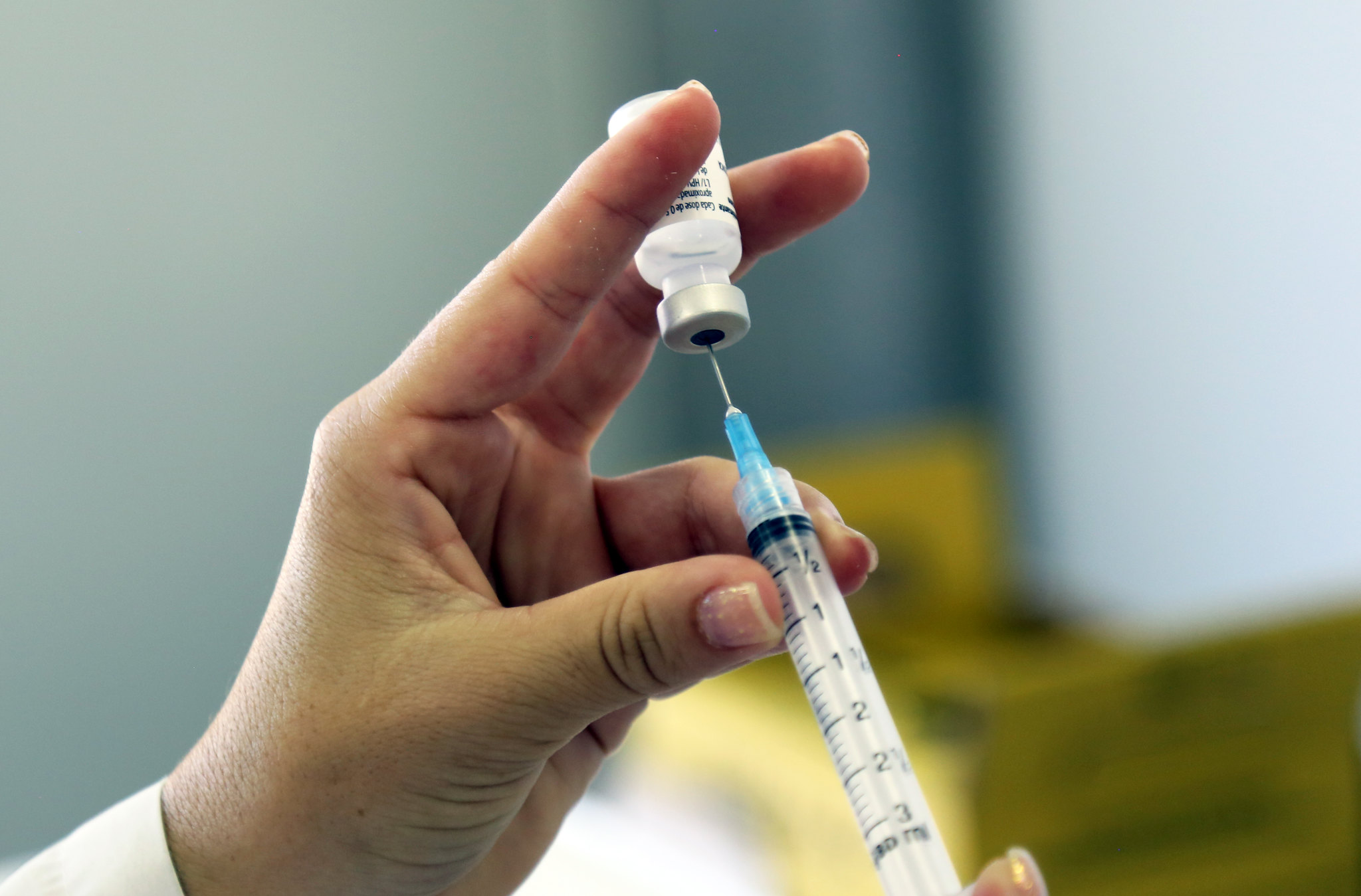It is World Immunisation Week and, despite this almost magically effective form of medicine being widely available, especially in the West, and frequently affordable or free, we find ourselves in a situation where there are measles outbreaks internationally. Other vaccine-preventable diseases can also be contracted, especially by those who have not been able to have a vaccination or who have high-risk conditions.
Measles is an illness that can usually be effectively prevented by having the MMR (measles, mumps and rubella) vaccination. It’s an inoculation that was introduced 31 years ago and the first of two injections is usually given within a month of a baby’s first birthday. Older children and adults can also have the injections if they are deemed to need them.
But children under the age of one, and anyone else who has not been vaccinated, is still at risk of contracting the conditions the MMR vaccinates against. People with lowered immunity and those who are pregnant can also be at risk and, although the extensive use of the vaccination in the wider population has reduced the number of outbreaks, there are still risks.
And so we are seeing pockets of measles outbreaks around the world and, as an illness where a quarter of those who contract it will be hospitalised, this is not a matter of simply suffering from a rash and a temperature for a few days. It can be serious – you may know that measles killed Roald Dahl’s daughter, and even though that was pre-MMR, the specific complication that she experienced is still untreatable today.
Vaccine hesitancy
Fuelled by social media misinformation, increasing numbers of parents are reluctant to get their children vaccinated. In privileged, Western countries where the worst of many diseases are hidden from view, it is easy to dismiss the importance of protection from illnesses that sound either minor or outdated, but it is in large part because of vaccinations that we have lost some of the healthy fear we should feel about them.
Memes talk about how minor certain conditions are, how little parents have to worry if their kids contract them, and they highlight false information about the risks associated with having children immunised. Frighteningly, parents are believing the memes and resisting the advice given to them by the professionals they otherwise trust with the care of their family.
When it’s a vaccination, suddenly your friendly doctor is an agent of Big Pharma who wants to permanently damage your child in order to create a customer for life. When it’s a vaccination, your normally lovely nurse is hiding the truth so that they can hurt your baby and give her autism. When it’s a vaccination, your family pharmacist who’s doled out antibiotics to you when you’re sick and antidepressants when you’re miserable is invested in lying to you so that he can sell a shot.
The autism thing
We really need to talk about the link between MMR vaccinations and autism. Here’s the truth: the only link between MMR vaccinations and autism is one that has been falsely created by a doctor who has been struck off for his terrible, fake study on the topic.
MMR does not cause autism. Vaccines do not cause autism. There is no link.
Andrew Wakefield is no longer a doctor, and he’s not even completely anti-vaccination, he just thought that the three conditions should be vaccinated against separately rather than together. He was also financially invested in separate vaccinations being available, funnily enough.
But a widely discredited, many times disproven study from years ago still puts the fear of god into some parents who fear autism like it is some kind of curse upon their children. In online groups where anti-vaxxers speak freely, some will even admit they would rather risk their child’s life than risk them developing autism; they would rather a dead child than an autistic one.
Even if it were true that MMR could cause autism, parents should still choose to save their kid’s life than risk them being neurodiverse. But it is not even true that there is a causal relationship. There isn’t. And it is offensive to autistic people to suggest that their lives are less worth living than their neurotypical peers’.
Prevention
Who wouldn’t want to limit a child’s chances of an early death? Who would be so complacent that they believe their child’s immune system is stronger than everyone else’s so they don’t need to have the jab that is saving everybody else’s lives? Who wants their child to suffer – even if from a minor illness – when a slightly sore arm and a raised temperature for a few hours can replace that?
Nobody relishes the prospect of having an injection, and nobody wants to make their baby cry. But when reliable, safe and effective methods have been proven, time and again, to work, we need to trust in those who have done all the work and put up with a moment of discomfort in exchange for a lifetime of immunity.


I hope this gets through to some people Dr Wakefield still has so much to answer for He got off light given the long-term damage he’s done to the English-speaking world’s health and especially to autistic people